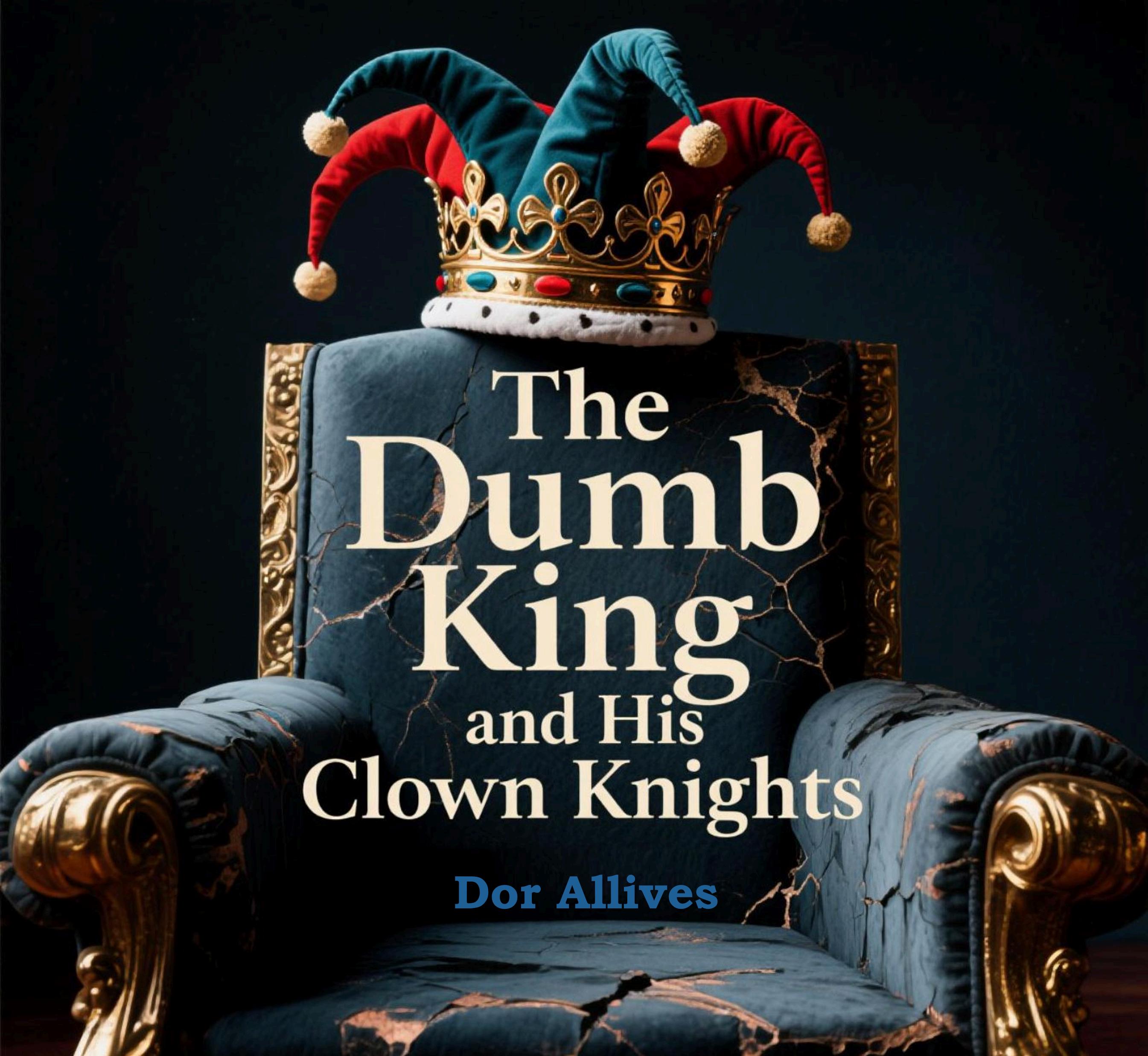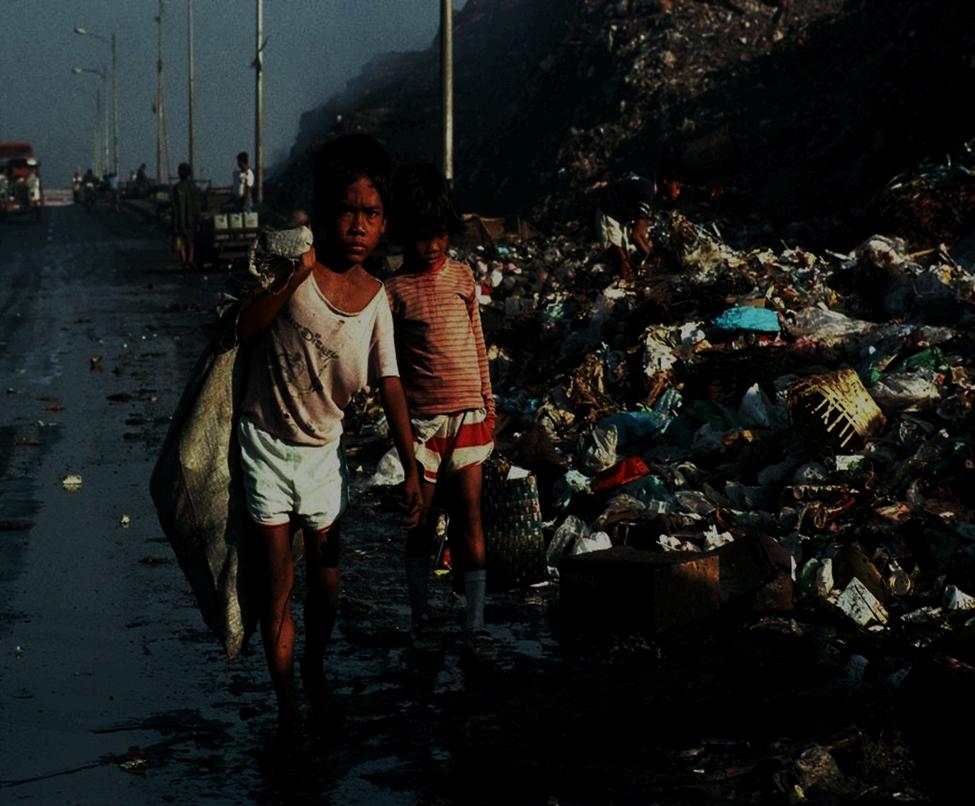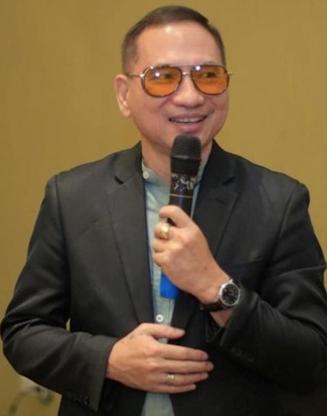

PROLOGUE
The Kingdom in Disarray
In a land once full of promise, hope now feels like a distant memory The kingdom is alive, its people are hopeful and resilient, but its heart is heavy with discontent. The ruler, crowned not by merit but by lineage and alliances, rules not with vision or courage, but with indifference masked by the theater of leadership.
The kingdom’s riches are siphoned away quietly, daily, by those closest to the throne and the King’s most trusted knights. Cloaked in smiles and public praise, they perform well for the eye of the beholder yet strip the land of its future.

INTRODUCTION
In every kingdom, the true power lies not just in the crown atop the ruler’s head, but in the trust placed by the people who live under its shadow. When that trust is broken, when leadership becomes a theater of empty promises and selfserving gestures, the kingdom begins to unravel - not with a roar, but with a whisper.
This is the story of such a kingdom. It is a tale of a king who wears his crown too heavy to lead, surrounded by knights who perform their duties as actors in a farce. Together, they rule a land crippled by corruption, neglect, and the illusion of reform.
But this book is not merely an indictment of misrule. It is a mirror held up to a reality many live daily, a reflection of how power, when left unchecked, becomes its own undoing. It is also a call to awareness and courage for those who dare to see beyond the spectacle and grasp the power they hold.
The Dumb King and his Clown Knights invites you to peer behind the curtain, to recognize the cracks beneath the gilded surface, and to choose whether to remain a spectator or become a participant in the kingdom’s rebirth. The story within these pages is as much yours as it is the King’s. Because true change begins when silence breaks, and when the many claim their voice.
Turn the page. The kingdom, in all its absurdity and potential, awaits.
CHAPTER 1
The Dumb King’s Crown
The King sits on his throne, heavy not just with the crown but with the burden of expectation Yet, beneath the gold and velvet, a startling truth remains hidden - the King is not that wise to rule the kingdom. He is dumb, not in the sense of lacking knowledge entirely, but in the failure to act decisively in the face of his people’s suffering.
He speaks in grand speeches filled with empty words and vague promises. “We are doing our best,” he proclaims, “we acknowledge our shortcomings, and we strive to improve.” These words echo through the marble halls of the palace, but outside, the streets tell a far different story.
The dumbness of the King is not simply ignorance; it is willful blindness. It is a strategic act, a cloak that conceals inaction and protects those weaving webs of corruption behind the scenes. For as long as the King appears to acknowledge failure, he gains applause from his court, the very knights who benefit the most from the status quo.
The people watch, some with hope, many with frustration. Their hardships deepen while official reports sing tunes of progress and goodwill. The King’s crown gleams, but it is a falsified symbol of power, hollow and disconnected from reality.
CHAPTER 2
The Clown Knights Assemble
Encircling the King stand the Clown Knights, a motley troupe of trusted officials and political cronies who treat governance like a circus act. They juggle scandal and duty with equal fingers’ finesse, pirouette around questions of accountability, and plaster on grins so wide they threaten to split with the strain of concealed greed. Their loyalty is less to the kingdom than to the spectacle of power, a carnival where deceit is the main event and the audience is too dazzled, or too wary to look.
They speak in rehearsed phrases, buzzwords of reform and transparency that echo through empty halls like a broken record skipping on hope. Yet behind every scripted promise lies a whispered deal, a backroom bargain that feeds the endless cycle of corruption.
These knights are masters of illusion, wielding smoke and mirrors to mask the kingdom’s decay. Their laughter rings hollow, a haunting refrain that drowns out the cries of those left behind. To the untrained eye, they perform loyalty and service. To those who know, they are architects of the kingdom’s undoing.
And the King? He watches, half asleep, content to wear his crown of ignorance as a shield. For as long as his court applauds, he need not lift a finger to change a thing The carnival goes on - the jesters in place, the audience captive, and the true cost hidden in plain sight.
CHAPTER 3
The Grand Illusion of Reform
In the grand hall of promises, reform takes center stage. The King delivers statements condemning corruption, declaring his resolve to root it out. These speeches are broadcast widely, greeted with headlines praising his “courage” and “transparency.”
But these declarations are smoke and mirrors, a scripted spectacle meant to distract from persistent inaction. Task forces are formed; commissions established. Reports are published - verbose, detailed, yet devoid of consequences .
The people watch these rituals, caught between hope and cynicism. Some dare to believe in change, clutching the King's words like a lifeline. Others, scarred by years of disappointment, see the pattern all too clearly - the cycle of false promise and broken trust.
The King’s most vocal supporters repeat his admissions endlessly, turning them into slogans. “He’s owning his faults,” they say, as if acknowledgment alone equates to progress. Yet the culture of corruption grows thicker, nourished by complacency and the absence of real accountability.
The grand illusion of reform becomes a theater where appearance outweighs substance.
CHAPTER 4
Corruption: The Invisible Enemy
Corruption in this kingdom is like a shadow that slips through cracks in the walls of power, unseen yet deeply felt. It is not simply about stolen coins or bribed officials, it is an erosion of trust, a decay that infects every institution.
The King and his Clown Knights speak of corruption as if it were a distant enemy, something abstract and external. They declare war on it publicly but treat it as a manageable nuisance privately. Meanwhile, graft, nepotism, and favoritism grow with impunity.
The people suffer consequences that do not make headlines: dilapidated schools, hospitals without medicine, roads that crumble under the rain, and opportunities stolen from the hopeful youth. Corruption is invisible only because those entrusted to expose it are often the ones benefiting from its spread.
Efforts to report wrongdoing become acts of courage, but they are often met with silence, dismissal or retaliation. The system protects itself even as it claims reform In this way, corruption becomes a parasite thriving on the very promises of transparency.
CHAPTER 5
The Theater of Public Apologies
Public apologies from the King have become a recurring act in the kingdom’s political theater Each scandal or failure is met not with decisive action, but with a scripted confession, a moment where the King solemnly acknowledges the problem, admits “shortcomings,” and declares his intent to do better.
These apologies are applauded loudly in the halls of power and parroted by allies in the media and government. The ritual comforts the inner circle, giving the illusion that accountability exists
But for the people, these apologies ring hollow. They are repetitive refrains that neither heal wounds nor prevent new ones. The same issues resurface, unchecked and unresolved.
This performance serves multiple purposes - it pacifies critics, reassures investors and international partners, and deflects genuine demands for change
Behind the respectful nods and standing ovations lies the cruel truth, words have replaced action. The King’s apologies are a shield, protecting the kingdom’s rulers from the consequences of their failures.
CHAPTER 6
The People’s False Praise
In the grand theater of this kingdom, the voices of the people are complex and conflicted. On the surface, many praise the King’s statements against corruption, applauding his public admissions as signs of transparency and leadership. Yet beneath this applause lies a bitter irony, a profound contradiction.
The very individuals and groups who echo the King’s anticorruption rhetoric are often the same ones who benefit from, perpetuate, or tolerate the corrupt system. This complicity is not limited to a few; it is woven through communities, businesses, and political networks. The cycle of false praise is both a survival strategy and an unwitting participation in deception.
By celebrating the King’s confessions without demanding real change, the people enable the continuation of corruption They engage in a collective self-delusion, where acknowledging problems replaces solving them, and words are mistaken for deeds.
This false praise creates a feedback loop that strengthens the status quo. It gives the impression to the King and his knights that their performances are effective, shielding them from pressure to act.
CHAPTER 7
Self-Deception and the Culture of Corruption
Corruption in this kingdom is not merely a political or economic issue, it has become a cultural norm, sustained by layers of self-deception that involve both rulers and the ruled.
The King and his court convince themselves that their symbolic gestures, public apologies, and controlled reforms are sufficient. This self-deception protects their power and comforts their conscience. To admit otherwise would be to confront uncomfortable truths about their complicity and failure.
Similarly, the people deceive themselves by accepting halftruths and token gestures as progress. They tell themselves that change is coming, that the King means well, or that corruption is simply “part of the system.” This acceptance dulls the urgency for real reform and allows corrupt practices to flourish unchecked.
This culture of corruption becomes a trap, a collective blindness where everyone is both victim and participant. It erodes social fabric and undermines the kingdom’s future.
Breaking free requires courage, awareness, and an honest reckoning with this self-deception, a challenge far greater than any simple policy reform.
CHAPTER 8
When the Kingdom Forgets Itself
A kingdom’s strength lies not only in its rulers but in the collective identity and spirit of its people. Yet when corruption thrives unchecked and leadership falters, the kingdom begins to lose sight of who it is and what it stands for.
Citizens grow weary, their voices silenced by apathy or fear. Civic participation dwindles, and trust in institutions crumbles. The shared vision that once united the people into a community fade into fragmentation and distrust.
When the kingdom forgets itself, it forgets its potential to change, to grow, and to demand accountability. The narrative becomes one of survival rather than progress, where ordinary people struggle simply to navigate a system rigged against them.
This loss of identity is perhaps the greatest casualty of corruption. Without a shared belief in justice and hope, the kingdom risks becoming a hollow shell, a place of stagnation and despair.
CHAPTER 9
The Cost of Silence
Silence is a powerful force - it can protect, but it can also destroy. In this kingdom, silence around corruption and inaction has become a costly default.
For the people, silence often arises from fear - fear of retribution, of losing jobs, or of social exclusion. It is a silence born from frustration and helplessness, where speaking out seems futile.
But silence also serves those in power. It allows corruption to flourish in the shadows, unchallenged and unpunished. The cost of this silence is paid in lost opportunities, eroded institutions, and shattered lives.
The kingdom’s brightest minds and most courageous hearts are dimmed by this quiet complicity Without voices rising, the cycle of abuse continues unchecked.
Breaking the silence is a call to courage, not just by the few who dare to speak, but by the many who choose not to look away. It is only through collective awakening that the kingdom can hope to reclaim its future.
CHAPTER 10
A Flicker of Hope
Amid the smoke and mirrors, a stubborn light still flickers. It resides in the hearts of those who see clearly, those who refuse to settle for empty speeches and hollow promises. It is found in whispered conversations, in grassroots movements, and in the quiet acts of courage stretching beyond the palace walls.
This flicker is fragile, but not feeble. It grows each day when voices rise, when hands join in solidarity, and when eyes no longer look away. It is a reminder that power belongs not solely to crowns or clubs of privilege, but to the people who demand accountability and justice.
Change is not an event led by a dumb King or masked Clown Knights. It is a movement built from the ground up, fueled by unyielding hope and relentless action. The kingdom’s future will not be written in speeches of remorse, but in the strength of those who refuse to be fooled any longer.
The choice stands clear, continue the charade or break the cycle and reclaim the kingdom’s promise. The path forward requires courage, honesty, and an unwavering belief in the power of the people.
The story may have begun with a dumb King and his clownish court, but it does not end there. It ends with the rise of a new chapter, written by those who dare to dream, to speak, and to act.
CLOSING STATEMENT
The story of the Dumb King and his Clown Knights is more than a tale of failed leadership and broken promises; it is a challenge. A challenge to look beyond surface appearances and confront uncomfortable truths. A call to recognize the role each of us plays in the continuation or the dismantling of corruption and complacency.
Change will not be handed down from a throne nor declared by empty speeches. It is forged in the courage of the many - those who dare to question, to hold power accountable, and to demand a kingdom worthy of its people.
As this story closes, the real journey begins The future belongs to those who refuse to be fooled, who break their silence, and who rise to reclaim their voice and their destiny.
The kingdom’s revival starts with you.
EPILOGUE
The Choice Before Us
This is more than a story of a dumb King and clownish knights. It is the story of a kingdom at a crossroads. It is the story of all who live in it, the rulers who must choose between convenience and conscience, and the people who must decide whether to remain passive or become active agents of change . The path forward demands courage, honesty, and relentless perseverance. It requires breaking the cycles of deception, both political and personal and reclaiming what has been lost.
The kingdom’s future is not written in the speeches of its King or the smiles of his knights, it is written by the hands of the people. It calls to each of us: Will you accept the challenge to listen, to see and to act?
The story of the dumb King is not the end. It can be the beginning of a new chapter, if only we dare to turn the page.

ABOUT THE AUTHOR
Before retiring from the military service in 2016, the author Rodrigo A. Sevilla dedicated 32 years serving his country as a decorated member of the Philippine Army. His extensive career brought him to the frontlines of remote, conflict-ridden areas, where he worked closely with local communities. These experiences forged his unwavering conviction that enduring peace isn't won through war, but through authentic peacebuilding.
Witnessing the extreme poverty particularly in the far-flung areas in the Philippines, the author had realized that there is a need to speak up on behalf of the people that have no time and capability to speak for their rights. Thus, he is a passionate advocate for honest, transparent and corruption free government as the bedrock of a truly peaceful and progressive society.
He firmly believes that if only the government able to deliver all the basic services for the people up to the farthest community, trust will follow for the leaders. And if the populace has trust in their leaders, they naturally choose peace over chaos, evolving into responsible, lawabiding members of society.
Through “The Dumb King and His Clown Knights”, Rodrigo shares his insights and calls for transformative leadership to build a nation where peace, progress and justice will prevail.
